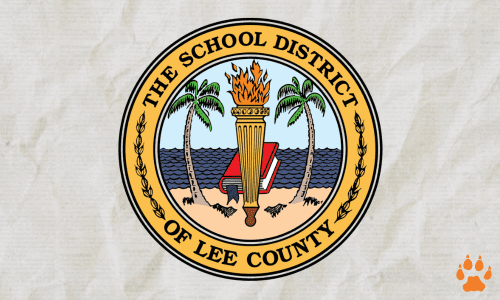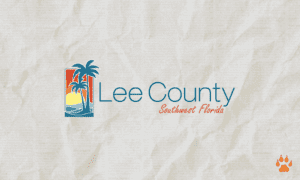By: Amanda Cochran
For several years, a growing number of concerned residents from East Lee County have urged the Lee County School District to adopt more responsible and transparent decision-making, particularly regarding the placement of new schools. Despite ongoing efforts—including emails, public testimony, and direct outreach to school board members—many feel their voices have been ignored.
The controversy has come to a head with the recent approval of the 2025AB Certificate of Participation (COPS) bond, a $400 million financial instrument to borrow and fund construction of two school renovations and one new school: Hector Cafferata Jr. K-8, Cypress Lake Middle, and the yet-to-be-built “School NNN” in rural Alva near two-lane Joel Blvd and Tuckahoe Rd (21700 Tuckahoe Road). While the first two renovation projects are widely supported, the proposed Alva location for School NNN has sparked intense community backlash, raising serious educational, fiscal, environmental, and legal concerns.
A School Where the Students Aren’t
According to district data, Lehigh Acres is home to nearly 8,000 public school students, compared to just 732 students across all grades in Alva—a sprawling, low-density area better known for cattle than classrooms. Despite this disparity, the District has prioritized the construction of a new high school in Alva rather than in Lehigh, where the student population and infrastructure already exist.
Critics say the move flies in the face of the District’s own “Neighborhood School Model,” which aims to reduce busing and promote community-centered schools. A formal Title VI civil rights complaint has been filed with the U.S. Department of Education’s Office of Civil Rights (OCR Case #04-25-1677), alleging potential discriminatory practices by redirecting critical educational resources away from racially and economically diverse areas like Lehigh Acres.
This scenario echoes a similar 2021 case in Estero, where a proposed school location triggered a federal investigation and the school location was ultimately withdrawn by the District.
Questions of Transparency and Legality
At the June 3, 2025 board meeting, five of seven school board members raised serious concerns over the proposed Alva site, citing infrastructure deficiencies, environmental impact, and a lack of public transparency. Nevertheless, the board unanimously voted to approve the COPS bond—after District staff, including Chief Strategy Officer Ken Savage, dismissed calls for further review and suggested informal “walk-arounds” with board members. Critics argue this process skirts Florida’s Sunshine Law and erodes public trust.
Watch the June 3 meeting at the 1:56:00 timestamp: https://www.youtube.com/watch?v=NJ0NgCrENdM
Oversight Erased, Public Input Silenced
The District recently reduced its board meetings to once a month, limiting public comment—often to just 60 seconds per speaker. Meanwhile, all five advisory committees promoted just last year—including the Construction Committee—have been quietly dissolved without public votes or clear justification. Only two oversight bodies remain, despite a voter-approved half-cent sales tax intended to fund new school construction with community guidance.
The Internal Audit Committee also sounded the alarm at its July 9 and July 23 meeting, where members cited ignored audit findings, rising construction costs, and repeated financial mismanagement reminiscent of past projects like Riverdale and Bonita Springs High.
Watch the audit discussion (start at 1:50:00, esp. 2:19:00): https://www.youtube.com/watch?v=ID-x3P5yt0s
A Pattern of Cost Overruns and Infrastructure Failure
In 2024, cost overruns at Riverdale High School became a major concern for community members, as renovation estimates ballooned from an initial $45 million to a staggering $108 million.
The estimated cost for School NNN has already risen from $140 million to more than $170 million—a 22% increase before a shovel hits the ground. The site at Tuckahoe Road in Alva has no existing infrastructure: no water, sewer, sidewalks, or turn lanes. In contrast, a District-owned 46.5-acre site at four-lane 201 Joel Blvd. and David Ave. in Lehigh Acres has full infrastructure, is surrounded by feeder schools, and would save tens of millions in construction and transportation costs.
Recent District capital projects not yet started have also seen sharp cost overruns:
| School Project | Jan 2024 Estimate | June 2024 Update | Increase |
| Hector Cafferata K-8 | $98.8M | $125M | +$26.2M |
| Cypress Lake Middle | $110M | $120M | +$10M |
| East Middle OO | $96M | $132M | +$36M |
| East High NNN | $140M | $162.2M | +$22.2M |
| East High QQQ | $182.5M | $231.2M | +$48.6M |
The public is now asking: Why financially bind the District to a site with unknown final costs, while ignoring an existing, better-prepared alternative?
Environmental, Safety and Equal Access Concerns
The Tuckahoe site lies within an environmentally sensitive Conservation 20/20 wildlife corridor, home to protected species like the Florida panther, black bear, and gopher tortoise. Surrounded by active gun ranges, narrow roads, and flood-prone land, it lacks the basic infrastructure to ensure student safety. Emergency services in the area are also limited.
Meanwhile, Lehigh Acres—a community of more than 134,000 people, including an estimated 6,000 to 8,000 high school-aged youth—has been effectively sidelined.
“This isn’t just bad planning. It’s a disservice to students, a burden to taxpayers, and possibly a violation of civil rights law,” said a Lehigh community leader. “The students are in Lehigh. The schools should be too.”
As part of its plan to construct the new NNN High School in rural Alva, the district is preparing to fund the installation of a 500,000-gallon water storage facility. This tank is necessary only because the Florida Governmental Utility Authority (FGUA) cannot supply adequate water pressure to the remote Alva site — a clear indicator that the area lacks basic infrastructure to support a major public facility like a high school.
Rather than choosing to build in Lehigh Acres, where infrastructure is already in place — including sewer, water, and 4-lane road access — the district is opting to spend millions of public dollars to retrofit utilities into an undeveloped area. This water tank represents a significant public investment in what is effectively a private development subsidy. The infrastructure will not only serve the school but is likely to benefit future real estate development in Alva, as its capacity far exceeds what is required for school operations alone.
This is a stark example of resource misallocation. The district is choosing to invest in a site that benefits landowners and developers — while denying timely, local access to education for students in Lehigh Acres. The decision further entrenches racial and socioeconomic disparities by delaying school construction in a community with a higher minority population, despite having ready-to-build land available.
Is there Political Influence?
Community members are also deeply concerned about potential political and financial influence driving these decisions. A prominent out-of-town developer with multiple pending and recently approved residential projects in the Alva area – and with known political contributions to the newly elected superintendent as well as District board members and associated PACs – stands to benefit from tax-payer funded infrastructure surrounding School NNN. This raises the question: is this school truly for the students, or is it a development incentive masquerading as public education?
What the Community Is Asking For
Community advocates are not asking to cancel the COPS bond entirely. Instead, they are calling for:
· Removal of the Tuckahoe Road site from the bond documents
· Relocation of School NNN to the existing Joel/David Ave. site in Lehigh
· Restoration of advisory committees and public oversight
· A formal review of potential legal and civil rights violations
District documents show the bond language allows flexibility in school siting—meaning this change is still possible. The school doesn’t have to be built in Alva. It’s a choice.
And right now, many believe it’s the wrong one.
To share your opinion with the School Board, visit www.leeschools.net and click “Contact the Board.”
Public meetings are held monthly. Your voice matters.








